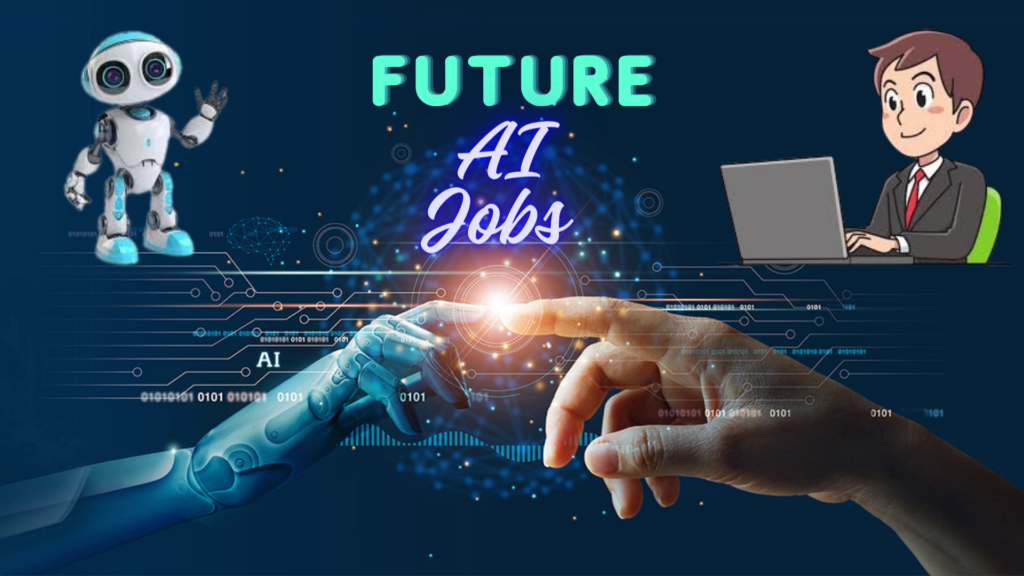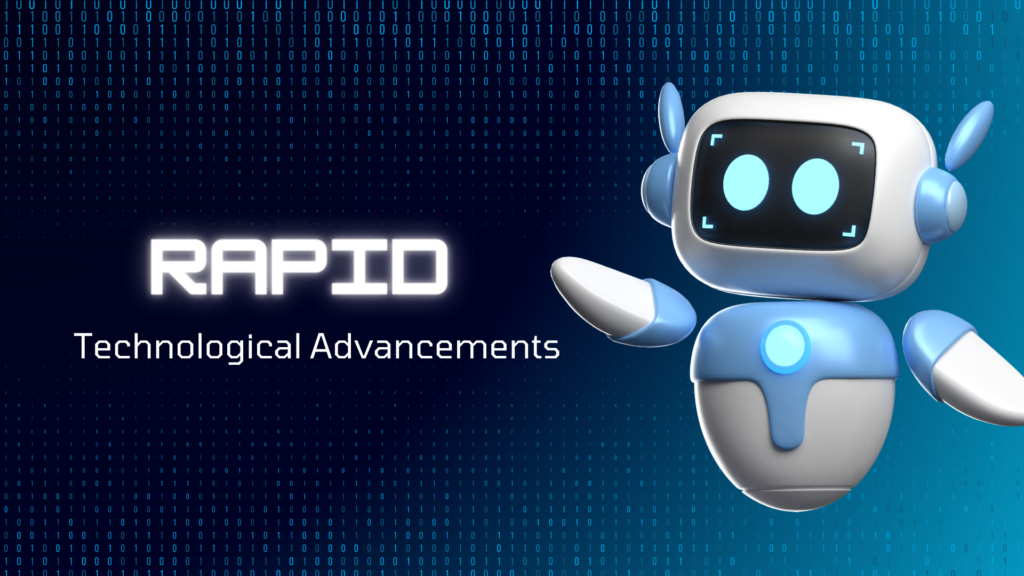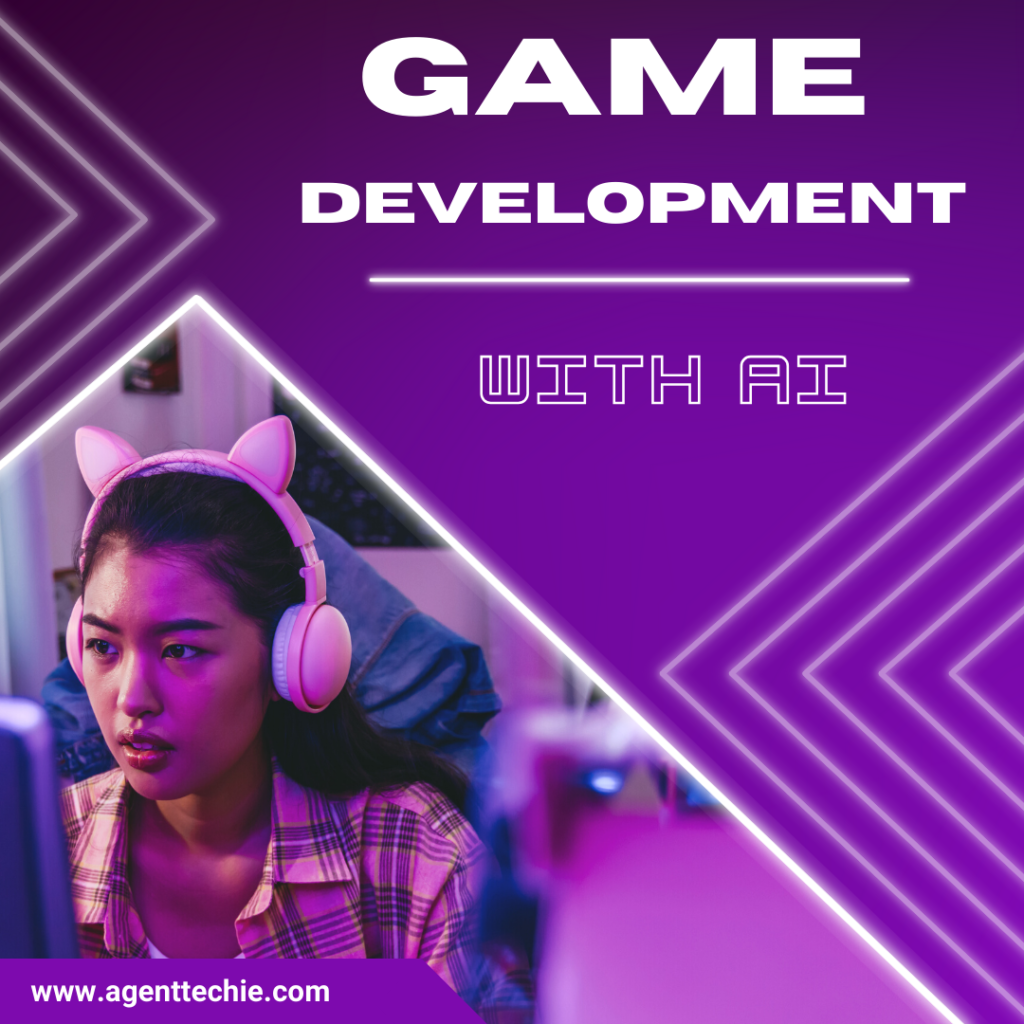
Future AI Jobs: 5 Reasons They Boost Career Fulfillment by 2024
In the fast-evolving landscape of 2024, the convergence of technology and employment is reshaping career trajectories. Future AI jobs, driven by artificial intelligence, emerge as not just employment opportunities but as catalysts for heightened career fulfillment. Here are five compelling reasons why:
1. Unleashing Creative Potential:
Future AI jobs are designed to augment human capabilities, not replace them. By automating routine tasks, these roles liberate professionals to channel their energy into more creative and strategic aspects of their work. This unleashing of creative potential leads to a sense of accomplishment and fulfillment as individuals see the tangible impact of their innovative contributions.
2. Diverse Career Pathways:
The landscape of Future AI jobs is expansive, spanning industries from healthcare to finance. This diversity opens up a plethora of career pathways, allowing individuals to align their skills and passions with a range of exciting opportunities. Whether one’s interest lies in data analysis, machine learning, or AI ethics, the breadth of options fosters a sense of career fulfillment through meaningful and varied work.
3. Continuous Learning Opportunities:
The dynamic nature of Future AI jobs demands ongoing learning and upskilling. In this scenario, professionals find themselves in a perpetual state of growth and development. The pursuit of knowledge and the acquisition of new skills not only keep individuals relevant in their roles but also contribute significantly to personal satisfaction and career fulfillment.
4. Collaborative Work Environments:
Future AI jobs often involve collaboration between humans and machines. This collaborative dynamic enhances teamwork and collective problem-solving. The synergy between human intuition and AI-driven insights fosters a sense of camaraderie and shared achievement. Professionals working in such environments often report higher levels of job satisfaction and fulfillment.
5. Positive Impact on Society:
Many Future AI jobs are centered around addressing societal challenges. Whether it’s developing healthcare solutions, optimizing resource management, or enhancing accessibility, these roles offer professionals the opportunity to contribute to the greater good. The sense of making a positive impact on society adds a profound layer of fulfillment to careers in the realm of AI.
Future AI jobs aren’t just about employment; they represent a paradigm shift in how individuals perceive and experience their careers. By embracing the opportunities presented by AI-driven roles, professionals in 2024 can find not only financial success but also a deep sense of fulfillment derived from creativity, diversity, continuous learning, collaboration, and societal impact. The future of work is not just about jobs; it’s about careers that resonate with personal and professional fulfillment.
In the world of work in 2024, jobs involving Future AI technologies are reshaping how people find satisfaction in their careers. These roles, powered by artificial intelligence, are more than just a way to earn a living; they’re paths to achieving meaningful and fulfilling professional lives.
Imagine a job where you’re encouraged to be creative. That’s what Future AI jobs offer. Instead of being bogged down by routine tasks, these jobs let you use your imagination and skills to make a real impact. It feels good to see how your innovative ideas contribute to the success of your work.
What’s remarkable about these jobs is that they cover a wide range of fields. Whether you’re interested in healthcare, finance, or something else entirely, there’s a Future AI job that suits your skills and interests. This variety means you can explore different paths, making your work more exciting and fulfilling.
In Future AI jobs, learning is a continuous journey. Because things are always changing, you’re always learning new things and improving your skills. This ongoing process not only keeps you relevant in your job but also gives you a sense of accomplishment and satisfaction as you grow and develop.
Collaboration is another key aspect of Future AI jobs. Instead of working alone, these jobs often involve teamwork between people and machines. This collaboration boosts a sense of togetherness and problem-solving as a group. Working in such an environment is enjoyable, and you feel a shared sense of achievement with your colleagues.
Moreover, these jobs often focus on making a positive impact on society. Whether it’s finding solutions for healthcare challenges, optimizing how resources are used, or improving accessibility for everyone, Future AI jobs allow you to contribute to making the world a better place. Knowing that your work has a positive impact adds a meaningful layer to your career.
To sum it up, Future AI jobs go beyond merely being a source of income. They represent a shift in how people view and experience their careers. By embracing the opportunities these jobs offer, professionals in 2024 can find not only financial success but also a deep sense of fulfillment derived from creativity, diversity, continuous learning, collaboration, and making a positive impact on society. The future of work isn’t just about jobs; it’s about building careers that bring personal and professional fulfillment.
Challenges in Future AI Jobs: Navigating the Path to Success
While Future AI jobs hold great promise, it’s essential to acknowledge and address the challenges that professionals might encounter on this innovative career path.
Complex Skill Requirements in Future AI Jobs:
Entering the realm of Future AI jobs often demands a diverse skill set, including proficiency in machine learning, data analysis, and programming. For individuals without a technical background, acquiring these skills can be a daunting task.
Example: Consider a marketing professional transitioning to a role involving AI. Learning the intricacies of machine learning may pose a significant challenge.
Ethical Dilemmas and Responsibility in Future AI Jobs:
Future AI jobs come with ethical considerations, such as bias in algorithms and the responsible use of AI. Professionals must grapple with the impact of their work on society and navigate the ethical dimensions of AI technology.
Example: Developers working on facial recognition software need to address concerns related to privacy and potential misuse of the technology.
Rapid Technological Advancements:
The rapid pace of technological advancements in AI requires professionals to stay constantly updated. Keeping up with the latest developments and tools can be overwhelming, especially for those in fast-evolving sectors.
Example: AI developers must adapt to new frameworks and algorithms to remain competitive in the ever-changing landscape.

Job Insecurity and Automation:
The fear of job displacement due to automation is a legitimate concern. As AI continues to evolve, some roles may become redundant, leading to job insecurity for individuals in specific industries.
Example: Automation in customer service may reduce the need for human representatives, potentially leading to job loss.
Addressing Challenges for a Successful Future in AI Jobs:
- Continuous Learning and Upskilling:
To overcome the complex skill requirements, professionals must embrace a mindset of continuous learning. Online courses, workshops, and industry certifications can help individuals acquire the necessary skills for Future AI jobs.
- Ethics Training and Responsible AI Practices:
Addressing ethical concerns requires proactive efforts. Professionals should undergo training on ethical considerations in AI and actively participate in discussions on responsible AI practices within their organizations.
- Embracing a Growth Mindset for Technological Changes:
To cope with rapid technological advancements, cultivating a growth mindset is crucial. Professionals should view changes as opportunities for growth rather than as obstacles, staying open to learning and adapting to new technologies.
- Diversification of Skills for Job Security:
To mitigate job insecurity, individuals should diversify their skill sets. Combining AI expertise with skills in problem-solving, creativity, and emotional intelligence can create a well-rounded professional profile less susceptible to automation.
while Future AI jobs offer exciting prospects, acknowledging and addressing these challenges is essential for professionals aiming for success in this dynamic field. By adopting a proactive approach to learning, embracing ethical considerations, adapting to technological changes, and diversifying skill sets, individuals can navigate the path to a fulfilling and secure career in Future AI jobs.
Ethical Hacking in Future AI Jobs: Safeguarding Progress and Innovation
In the rapidly evolving landscape of Future AI jobs, the significance of ethical hacking becomes increasingly apparent, playing a pivotal role in ensuring the responsible development and deployment of AI technologies.

Identifying Vulnerabilities and Enhancing Security:
Ethical hackers, also known as penetration testers, are instrumental in identifying and addressing vulnerabilities in AI systems. By simulating cyber-attacks, they help organizations fortify their AI applications, ensuring robust security measures.
Example: A healthcare AI system handling patient data needs rigorous testing to identify and rectify potential security loopholes, safeguarding sensitive information.
Ensuring Ethical Use of AI Algorithms:
Ethical hacking serves as a check against the misuse of AI algorithms. By scrutinizing AI systems for bias, fairness, and adherence to ethical guidelines, ethical hackers contribute to the responsible and equitable deployment of AI technologies.
Example: Ethical hackers can assess whether a hiring AI system is biased against certain demographics, helping organizations uphold fairness and diversity.
Protecting Against Cyber Threats:
As AI becomes more integrated into critical infrastructure and daily life, the threat of cyberattacks grows. Ethical hackers play a crucial role in proactively identifying and mitigating potential threats, safeguarding AI systems from malicious intent.
Example: Autonomous vehicles, powered by AI, require robust cybersecurity measures to prevent unauthorized access and potential accidents.
Maintaining Consumer Trust:
Trust is paramount in the adoption of AI technologies. Ethical hacking helps organizations demonstrate their commitment to security and ethical practices, fostering trust among consumers and stakeholders.
Example: A financial institution utilizing AI for fraud detection must assure customers that their sensitive information is secure through rigorous ethical hacking measures.
.Compliance with Regulatory Standards:
With the increasing scrutiny of AI applications, adherence to regulatory standards is essential. Ethical hacking assists organizations in ensuring compliance with data protection laws and industry-specific regulations.
Example: An AI system used in finance must comply with regulations like GDPR to protect customer data, making ethical hacking an integral part of the compliance process.
ethical hacking emerges as a cornerstone in the responsible development and deployment of AI technologies in Future AI jobs. By identifying vulnerabilities, ensuring ethical use, protecting against cyber threats, maintaining consumer trust, and facilitating compliance with regulations, ethical hackers contribute significantly to the progress and ethical foundation of AI advancements. As the field of Future AI jobs continues to grow, the role of ethical hacking becomes indispensable for fostering a secure and trustworthy AI landscape.
Gaming in India: A Gateway to Future AI Jobs
In India, the gaming industry is not just about entertainment; it’s increasingly becoming a fertile ground for Future AI jobs. As technology advances, the synergy between gaming and artificial intelligence (AI) creates exciting opportunities for professionals seeking innovative and dynamic career paths.
AI-Powered Gaming Experiences:
Future AI jobs in the gaming sector involve developing AI algorithms that enhance gaming experiences. From creating intelligent non-player characters (NPCs) to dynamic storytelling, professionals are harnessing AI to make games more immersive and engaging.
Example: AI-driven NPCs in games adapt to players’ behavior, providing a personalized and challenging gaming experience.
AI in Game Development:
AI is revolutionizing the game development process. Future AI jobs in India include roles where professionals leverage machine learning to automate aspects of game design, streamline testing processes, and optimize graphics rendering.
Example: AI algorithms can analyze player feedback to inform developers on how to enhance game mechanics and features.

E-Sports Analytics and Performance Enhancement:
With the rise of e-sports in India, Future AI jobs focus on leveraging AI for performance analytics. Professionals are developing algorithms that analyze player strategies, optimize in-game decision-making, and enhance overall team performance.
Example: AI-powered analytics tools provide insights into opponents’ gaming patterns, helping e-sports teams refine their strategies.
AI-Powered Virtual Reality (VR) and Augmented Reality (AR):
The integration of AI with VR and AR technologies is creating new dimensions in gaming. Future AI jobs involve creating immersive experiences where AI adapts virtual environments based on player interactions, making gaming more realistic and captivating.
Example: AI algorithms enhance VR simulations by adjusting scenarios in real-time, responding to players’ actions.
AI for Game Monetization and Personalization:
In the business aspect of gaming, AI is pivotal for personalized monetization strategies. Future AI jobs in India include roles where professionals use machine learning to tailor in-game purchases and advertisements to individual player preferences.
Example: AI algorithms analyze player behavior to suggest in-game purchases that align with individual gaming preferences, enhancing user engagement.
AI in Gaming Security:
As online gaming platforms expand, ensuring security is paramount. Future AI jobs involve developing AI-driven security measures to detect and prevent cheating, fraud, and other cybersecurity threats within gaming ecosystems.
Example: AI algorithms can identify patterns associated with cheating behaviors, enhancing the integrity of online gaming environments.
In India, the intersection of gaming and AI is creating a dynamic landscape for Future AI jobs. As the gaming industry continues to evolve, professionals with skills in AI development, machine learning, and data analytics will find ample opportunities to shape the future of gaming experiences in the country. Whether it’s enhancing gameplay, optimizing development processes, or ensuring the security of virtual worlds, the fusion of gaming and AI opens up exciting and innovative career paths for Indian professionals in the years to come.
Transforming Industries and Careers
The influence of artificial intelligence (AI) extends far beyond the gaming realm, reshaping various industries and creating new avenues for Future AI jobs. Let’s explore some of the profound effects AI has on different sectors:
Healthcare Revolution:
AI is revolutionizing healthcare by accelerating diagnosis, personalized treatment plans, and drug discovery. Future AI jobs in healthcare involve developing AI algorithms that analyze medical data, enhancing patient care and medical research.
Explore more: AI in Healthcare
Smart Manufacturing and Industry 4.0:
In the manufacturing sector, AI is driving the transition to Industry 4.0. Future AI jobs include roles where professionals leverage AI for predictive maintenance, quality control, and optimizing supply chain operations.
Learn more: AI in Manufacturing
Financial Insights and Automation:
AI is transforming the financial industry with predictive analytics, fraud detection, and algorithmic trading. Future AI jobs in finance involve developing AI models that provide real-time insights, automate routine tasks, and enhance decision-making processes.
Read further: AI in Finance
Education and Personalized Learning:
In education, AI is fostering personalized learning experiences. Future AI jobs include roles where professionals use AI to analyze learning patterns, develop adaptive educational content, and provide targeted support to students.
Dig deeper: AI in Education
Smart Cities and Urban Planning:
AI contributes to the development of smart cities by optimizing infrastructure, traffic management, and public services. Future AI jobs in urban planning involve using AI to analyze data for sustainable city development.
Discover more: AI in Smart Cities
Environmental Sustainability:
AI is playing a crucial role in addressing environmental challenges. Future AI jobs in sustainability include roles where professionals use AI to analyze data for resource optimization, climate modeling, and biodiversity conservation.
Explore further: AI for Sustainability
Ethics and Responsible AI:
As AI’s influence grows, there is a growing emphasis on ethics and responsible AI practices. Future AI jobs include roles focused on ensuring fair, transparent, and ethical use of AI technologies.
Read about it: Ethics in AI
the impact of AI is pervasive, transforming industries and creating a demand for diverse skills in the job market. Exploring these links provides insights into the evolving landscape of Future AI jobs and how professionals can contribute to the transformative power of artificial intelligence across various sectors.
A recent graduate entering the job market in 2023 with a background in AI can explore various exciting opportunities. Here are some potential career paths and job opportunities for someone entering the AI field:
- AI Software Developer/Engineer:
- Develop and implement AI algorithms and models.
- Work on machine learning applications, computer vision, or natural language processing projects.
- Collaborate with cross-functional teams to integrate AI solutions into existing systems.
- Data Scientist:
- Analyze and interpret complex datasets to extract meaningful insights.
- Use statistical techniques and machine learning algorithms to solve business problems.
- Develop predictive models and data-driven strategies.
- Machine Learning Engineer:
- Design and implement machine learning systems and algorithms.
- Fine-tune and optimize existing ML models.
- Work on end-to-end machine learning projects, from data collection to deployment.
- AI Research Scientist:
- Engage in cutting-edge AI research to advance the field.
- Contribute to the development of new algorithms, models, and technologies.
- Publish research findings in conferences and journals.
- Computer Vision Engineer:
- Develop applications for image and video analysis.
- Work on facial recognition, object detection, and image classification projects.
- Collaborate on projects related to augmented reality and virtual reality.
- Natural Language Processing (NLP) Engineer:
- Develop NLP applications such as chatbots, language translation, and sentiment analysis.
- Improve language models and algorithms for better understanding and generation of human language.
- AI Product Manager:
- Bridge the gap between technical and non-technical stakeholders.
- Define product strategy and roadmaps for AI-driven products.
- Work closely with development teams to ensure successful product delivery.
- Robotics Engineer:
- Design and develop intelligent systems for robots and automation.
- Work on projects involving robot perception, control, and decision-making.
- Collaborate with multidisciplinary teams on robotic applications.
- AI Consultant:
- Provide expertise to businesses seeking to implement AI solutions.
- Analyze client needs and recommend suitable AI strategies.
- Help organizations navigate ethical and regulatory considerations in AI.
- AI Analyst:
- Analyze market trends and developments in the AI space.
- Evaluate the impact of AI on industries and businesses.
- Provide insights and recommendations for AI adoption.
- AI for Healthcare Specialist:
- Work on AI applications for medical imaging, diagnostics, and personalized medicine.
- Collaborate with healthcare professionals to improve patient outcomes.
- Address challenges in healthcare through innovative AI solutions.
- AI Educator/Trainer:
- Teach AI concepts and technologies to students or professionals.
- Develop educational materials and courses on AI.
- Stay updated on the latest trends to provide relevant and practical training.
- AI Governance and Ethics Specialist:
- Address ethical considerations in AI development and deployment.
- Develop policies and guidelines for responsible AI use.
- Ensure compliance with ethical standards and regulations.
- AI Start-up Entrepreneur:
- Explore entrepreneurial opportunities by starting an AI-focused venture.
- Develop innovative AI products or services to address market needs.
- Navigate the startup ecosystem and seek funding for projects.
- AI in Cybersecurity Analyst:
- Work on developing AI-based tools for threat detection and cybersecurity.
- Analyze patterns and anomalies in network data to enhance security.
- Collaborate with cybersecurity teams to strengthen defenses.

For a recent graduate in AI, gaining practical experience through internships, contributing to open-source projects, and continuing education through workshops or certifications can enhance employability. Additionally, building a strong portfolio showcasing relevant projects and skills can significantly impact job prospects in the competitive AI job market.
Conclusion: Navigating the Future of AI Jobs in a Dynamic Landscape
As we navigate the evolving landscape of artificial intelligence (AI) jobs, it becomes evident that the influence of AI extends far beyond its initial conception as a technological novelty. The fusion of AI with diverse industries, from healthcare to finance, smart cities to education, creates a dynamic ecosystem that offers both opportunities and challenges for professionals seeking to carve out their careers in the future.
The gaming industry in India serves as an intriguing microcosm of this larger narrative. While it provides a captivating platform for the intersection of AI and entertainment, it’s essential to recognize that AI’s impact is not confined to gaming alone. The ripple effects of AI innovation permeate every sector, shaping the nature of work and demanding a new set of skills from the workforce.
Diverse Applications of AI: A Glimpse into the Future
In the healthcare sector, AI stands as a transformative force, accelerating diagnoses, personalizing treatment plans, and unlocking insights in medical research. Professionals in Future AI jobs within healthcare will find themselves at the forefront of a revolution, leveraging AI algorithms to navigate the vast landscape of medical data, ultimately improving patient care and contributing to groundbreaking discoveries. The link provided offers a deeper dive into the current applications of AI in healthcare, showcasing real-world examples of how AI is making a tangible impact.
The manufacturing industry, too, is experiencing a paradigm shift with the integration of AI. The advent of Industry 4.0 heralds a new era of smart manufacturing, where AI plays a crucial role in predictive maintenance, quality control, and supply chain optimization. Future AI jobs in this sector require a blend of technical prowess and strategic thinking to harness the full potential of AI-driven advancements. For those interested in the details, the accompanying link provides insights into the implications of AI in manufacturing.
In the financial landscape, AI is not merely a technological tool but a catalyst for change. It powers predictive analytics, fraud detection, and automates complex tasks, transforming how financial institutions operate. Professionals in Future AI jobs within finance find themselves in roles that demand a deep understanding of both AI algorithms and the intricate workings of the financial world. The link shared delves into how AI is reshaping the finance sector and shaping the future of financial services.
Education is undergoing a metamorphosis with the integration of AI, bringing forth personalized learning experiences. Future AI jobs in education require individuals to navigate the delicate balance between technology and pedagogy, using AI to analyze learning patterns and provide tailored support to students. The link provided delves into real-world applications of AI in education, illustrating how AI is redefining the learning experience.
The concept of smart cities, fueled by AI, is reshaping urban planning and infrastructure development. AI optimizes traffic management, public services, and contributes to the sustainable development of cities. Future AI jobs in smart city planning necessitate professionals to navigate the complexities of urban ecosystems, leveraging AI for a harmonious blend of efficiency and sustainability. The accompanying link offers a closer look at the role of AI in building smarter cities.
In the realm of environmental sustainability, AI emerges as a powerful ally in addressing pressing global challenges. Professionals in Future AI jobs related to sustainability wield AI to analyze data for resource optimization, climate modeling, and biodiversity conservation. The link provided showcases how AI is contributing to a more sustainable future.
The ethical dimension of AI cannot be overlooked. As AI permeates every aspect of our lives, there is a growing emphasis on responsible AI practices. Future AI jobs dedicated to ethics and responsible AI are pivotal in ensuring that the benefits of AI are equitably distributed and that potential risks are mitigated. The accompanying link provides insights into the ethical considerations surrounding AI.
Challenges on the Horizon: Navigating the Complexity
While the promises of Future AI jobs are enticing, it’s crucial to acknowledge the challenges that come with this transformative wave of technology. The complexities range from the need for diverse skill sets to the ethical dilemmas inherent in AI applications. For those venturing into the world of Future AI jobs, continuous learning becomes not just a suggestion but a necessity. The rapid pace of technological advancements demands adaptability and a commitment to staying informed about the latest developments in AI.
Ethical considerations in AI development and deployment are paramount. The potential for bias in algorithms, issues of privacy, and the responsible use of AI technologies necessitate a vigilant and ethically conscious approach. Future AI jobs dedicated to ensuring ethical practices play a critical role in steering the trajectory of AI development in a positive direction.
Job insecurity stemming from the fear of automation is a valid concern. As AI continues to evolve, some traditional roles may become redundant, leading to uncertainties in certain industries. However, diversifying skill sets and embracing a growth mindset can be key strategies to navigate these challenges, making individuals more resilient in the face of evolving job landscapes.
Conclusion: Charting a Course for a Fulfilling Future
As we stand at the intersection of AI and the future job market, it’s clear that the opportunities presented by AI are vast and transformative. Future AI jobs are not just about adopting a new technology; they represent a shift in how we approach work, learning, and problem-solving. Professionals who embark on this journey with a commitment to continuous learning, ethical practices, and adaptability will find themselves not merely riding the wave of change but actively shaping the future of their industries and careers.
In conclusion, the future of AI jobs is dynamic, promising, and, with the right approach, immensely fulfilling. The links provided serve as gateways to deeper insights into the diverse applications of AI across industries, offering a glimpse into the exciting possibilities that lie ahead for those ready to embrace the transformative power of artificial intelligence.
Read more : https://agenttechie.com/the-future-of-gaming-in-india/
Read more : https://agenttechie.com/10-essential-tips-for-successful-terrace-gardening/
What are Future AI Jobs?
AI jobs involve creating, implementing, and maintaining artificial intelligence systems for various industries.
Why are AI skills in demand?
AI skills meet the rising need for automation, data analysis, and innovation across industries
Are AI jobs only for tech experts?
No, AI jobs span diverse fields. Professionals in healthcare, finance, and more leverage AI for innovation.
Will AI replace human jobs?
AI may automate routine tasks, but it also creates new jobs, emphasizing collaboration between AI and humans.
How do AI jobs impact the future workforce?
AI jobs reshape work, demanding adaptability and continuous learning. They offer diverse career paths and opportunities.
